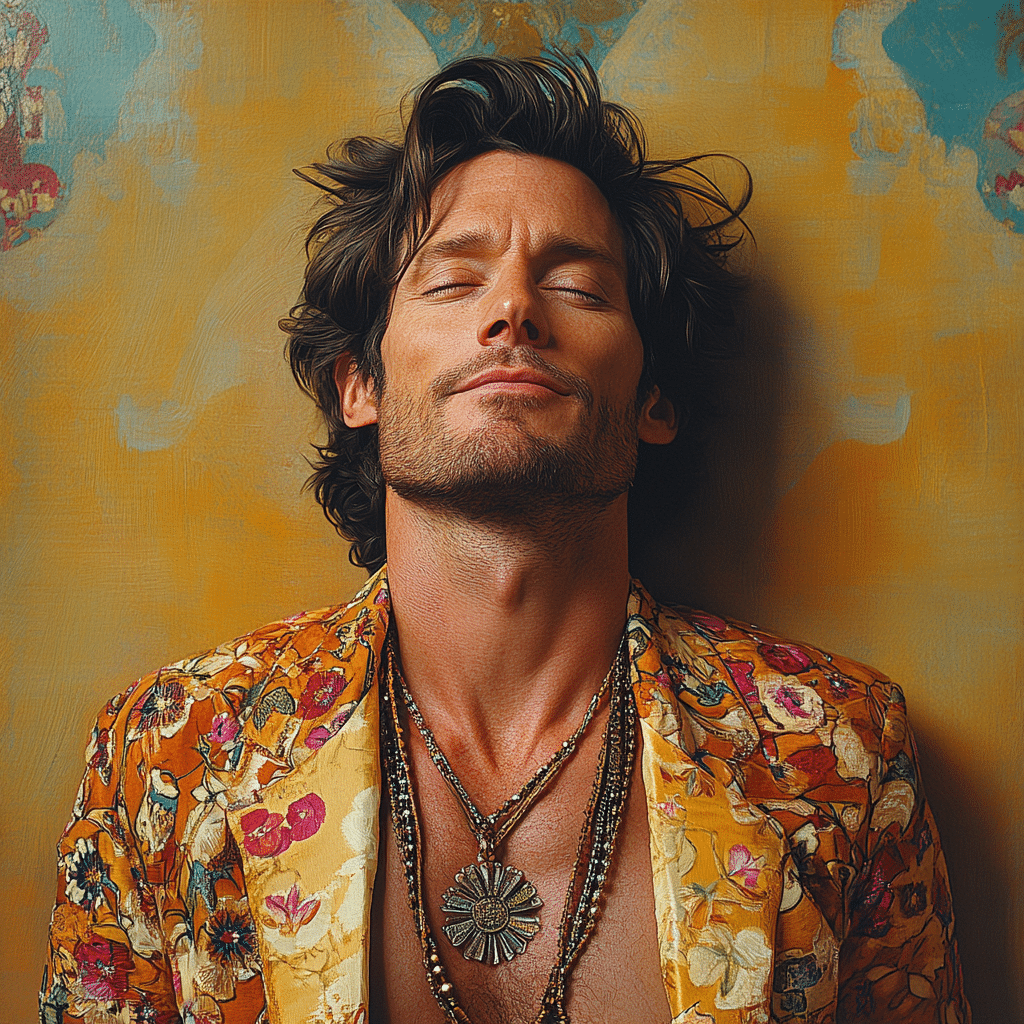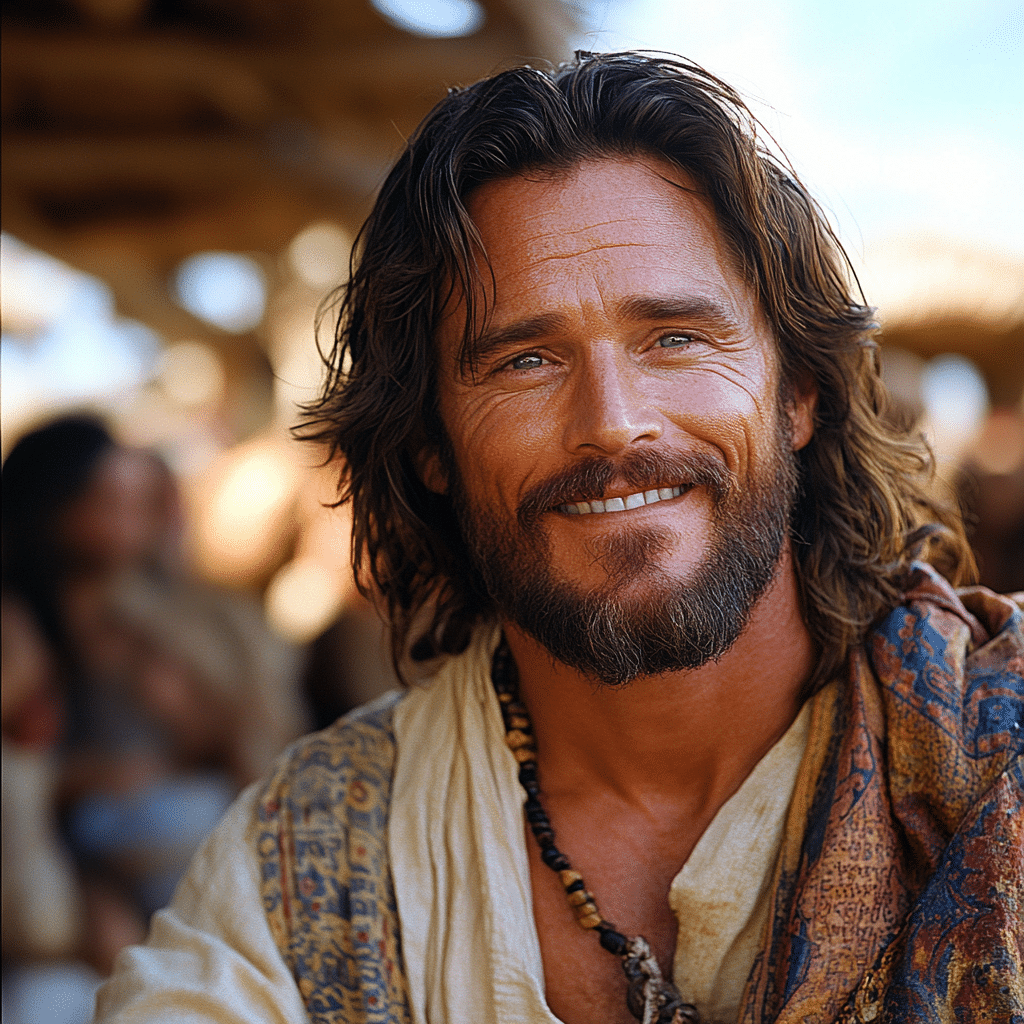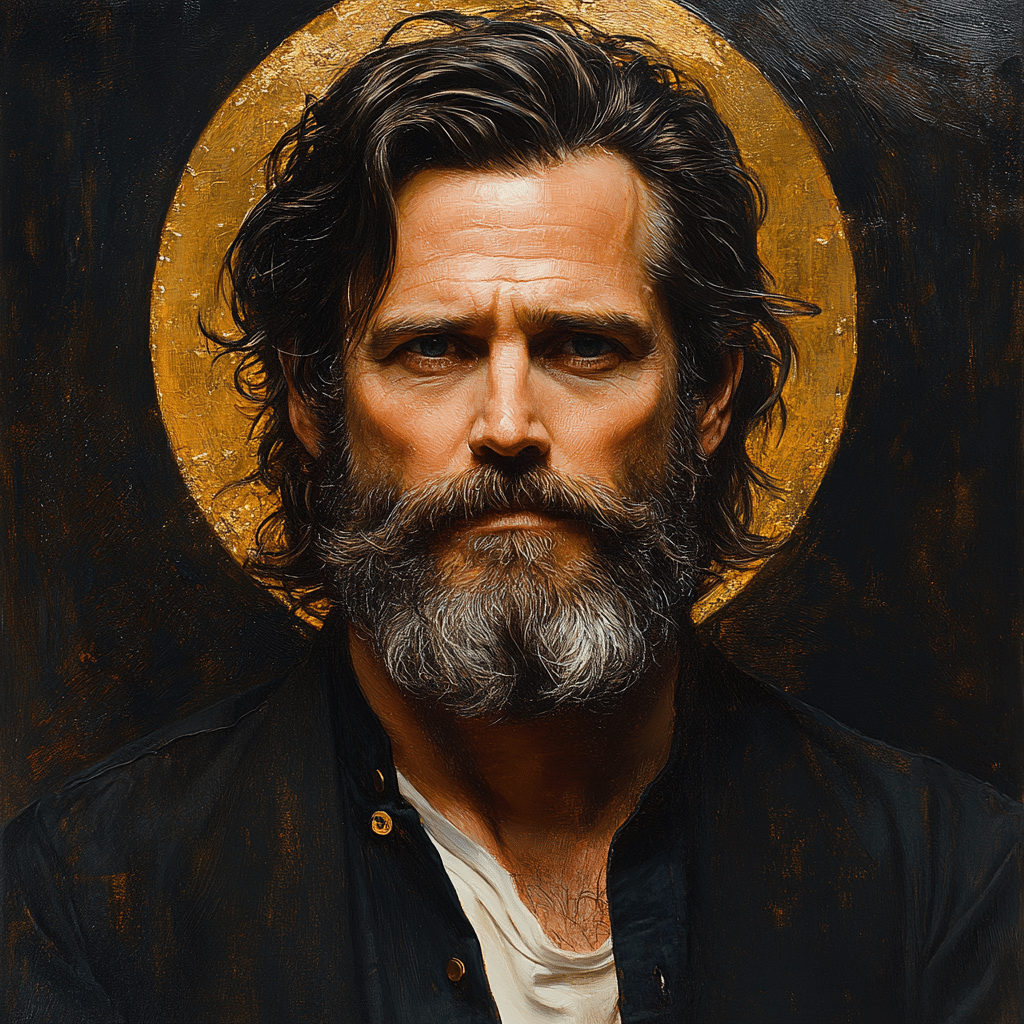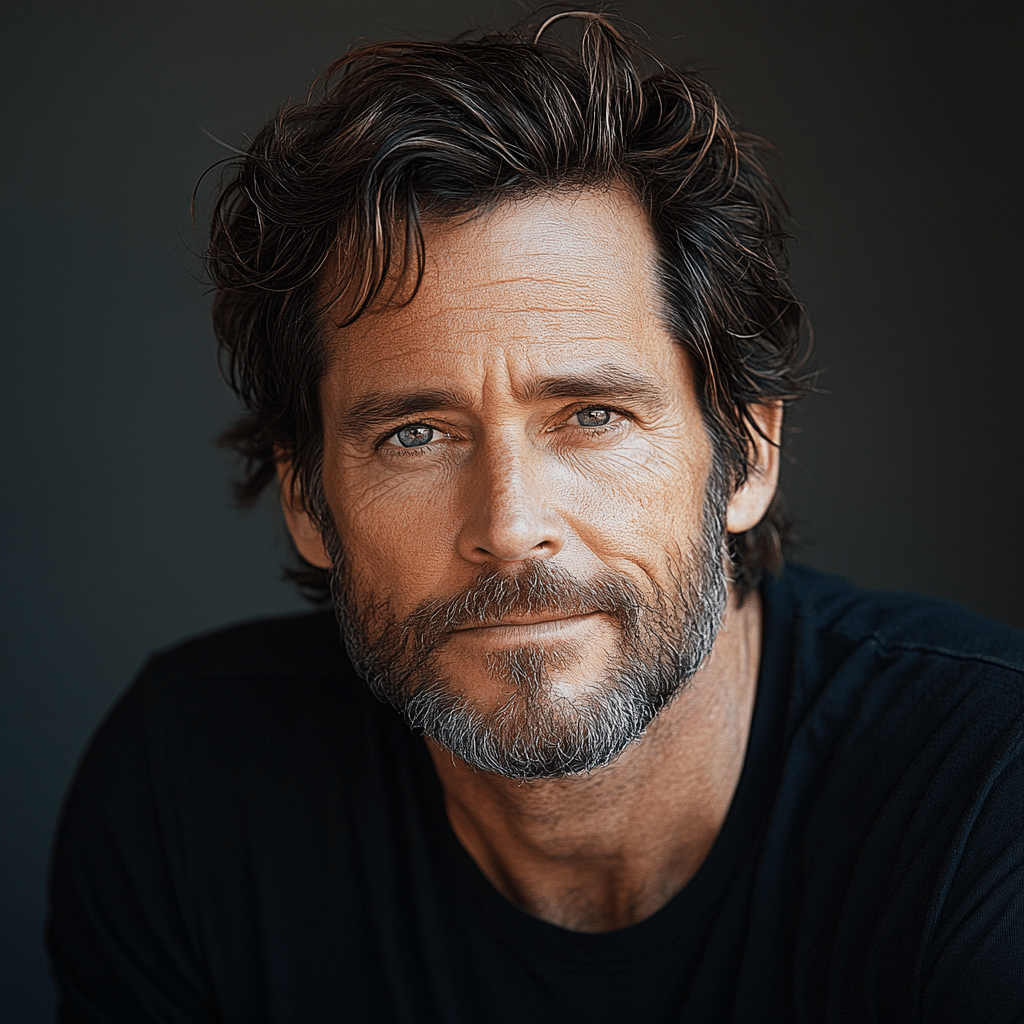Is Jim Carrey Christian? The question isn’t just about a label—it’s about the man himself, his evolution in belief, and how his journey through faith has been intertwined with his rise to fame. Carrey’s life proves to be a fascinating tapestry woven with threads of pain, humor, and introspection. From his troubled childhood to his Hollywood success and spiritual exploration, the narrative of his faith journey is anything but simple.
1. The Early Years: Foundations of Belief
Jim Carrey was born in Newmarket, Ontario, in 1962, where financial struggles painted the backdrop of a dynamic yet challenging childhood. Coming from a strong Catholic upbringing, his parents infused a variety of moral values into his life. His father worked as a musician, but when work dried up, the family faced hardships, leading them to live in a van for a time. These struggles created an environment where faith in God was crucial, echoing the words of his mother, who urged him to explore spirituality.
Carrey attended Catholic schools, where he encountered strict teachings and rituals. These early influences shaped his views on faith, accentuating the importance of traditional values. His parents nurtured his creative talents, encouraging him to perform and use humor as a coping mechanism. This multifaceted upbringing laid the groundwork, instilling questions about belief and purpose that would stir within him for years.
It’s essential to examine how these foundational experiences influenced his understanding of Christianity. As a child, Carrey viewed faith through a conventional lens, often participating in mass and religious events. However, as we shall see, these early roots would eventually come into question as he journeyed through Hollywood’s complex landscape.

2. A Shift in Perception: Hollywood and Spirituality
By the 1990s, Jim Carrey emerged as a household name, known for iconic roles in films like Ace Ventura: Pet Detective and The Mask. What happened to his belief in Christianity amidst the Hollywood spotlight? His ascent into fame introduced not just wealth and recognition, but also a shift in how he viewed faith. Interviews from the time reveal a man grappling with the restraints of traditional religious norms.
In a memorable interview with Rolling Stone, Carrey expressed doubts about conventional institutions, stating, “I don’t believe in a God that would let a kid die.” This statement sparked conversations about his views—it became evident that the pressures of Hollywood challenged his faith upbringing. Instead of embracing the church’s tenets, he began to explore spirituality more broadly, leaning towards existential inquiry.
With the pressures and temptations that come with fame, Carrey’s spiritual journey diverged further from his roots, opening doors to array of philosophical explorations. This inclination positioned him as a seeker in a world often skeptical of traditional faith, reflective of many in his audience who grapple with similar sentiments.
3. Influences Beyond Christianity: The Quest for Spiritual Understanding
Over the years, Carrey has delved into a wealth of philosophical and spiritual teachings—from Buddhism to Transcendental Meditation. His quest wasn’t aimless; instead, he sought deeper truths that took him beyond the confines of his Catholic upbringing. This connected him not just to Eastern philosophies, but also to groundbreaking thinkers who pushed the boundaries of human thought.
Carrey’s foray into Buddhism might raise eyebrows among those asking, “Is Jim Carrey Christian?” His statements at various spiritual events indicate a search for universal truths, often challenging the exclusive nature of specific religious identities. Co-creator and friend, Eckhart Tolle, has often cited Carrey’s explorations as reflective of a broader, more inclusive spirituality. Their exchanges provide a glimpse into Carrey’s evolving mindset—suggesting a desire for connection over division.
In an interview with Oprah Winfrey, Carrey remarked, “We are not our thoughts; we are the awareness behind our thoughts.” This mirrors themes found within Buddhism, showcasing how his spiritual understanding has grown and intertwined with his artistic expression. Rather than adhering strictly to Christian doctrine, Carrey appears committed to understanding spirituality in a way that resonates with his experiences.

4. Personal Experiences of Faith: Triumph and Tragedy
Grief and loss have profoundly impacted Carrey’s spiritual journey. The untimely death of his former girlfriend, Cathriona White, prompted him to explore profound themes of loss and the afterlife. During public appearances following her passing, Carrey spoke openly about his struggles with faith, questioning the nature of existence and his purpose on earth.
He mentioned, “I don’t know where it all leads, but I know I have to keep exploring,” which paints a portrait of a deeply reflective individual wrestling with life’s harsh realities. Carrey’s vulnerability allowed fans to truly connect with him—humanizing the thigh-achingly funny star. This experience marked a pivotal turn, signaling Carrey’s interactions with spirituality had become personal rather than theoretical.
In dealing with the aftermath of tragedy, Carrey faced not only sorrow but a longing for meaning. His artistic work, particularly films like Eternal Sunshine of the Spotless Mind, often navigates similar themes of love and loss. By weaving his personal struggles into his art, he invites audiences into his narrative—a narrative that poses the question, “Is Jim Carrey Christian?” in a broader light.
5. Jim Carrey’s Current Stance: Is He Practicing Christianity?
As of 2024, Jim Carrey’s stance on Christianity seems less about strict adherence to a single faith and more about embracing a broader tapestry of beliefs. His fluctuating relationship with traditional faith raises important questions. He still identifies with certain aspects of Christianity, perhaps appreciating the moral structure it provides while also seeking alternative answers.
Carrey remains vocal about spirituality on social media, often sharing quotes and ideas from a myriad of sources. He once remarked, “Life doesn’t happen to you; it happens for you,” showcasing a philosophical outlook that transcends a single spiritual framework. His ongoing exploration highlights how his views have evolved into a complex understanding of faith.
Through various interviews and public appearances, we see that Carrey continues to navigate the line between identification and exploration. Rather than proclaiming absolute belief, he appears to advocate for a journey—one that resonates with many who seek clarity amid uncertainty. Thus, answering “Is Jim Carrey Christian?” becomes a layered inquiry.
6. The Public Persona vs. Private Beliefs: The Dichotomy of Jim Carrey
Carrey’s public persona achieved legendary status through memorable comedic performances, yet his private beliefs delve into profound and weighty subjects. While the world knows him for his roles that induce laughter, there exists a juxtaposition with his serious philosophical inquiries. Films like Eternal Sunshine of the Spotless Mind bridge this gap, merging humor with deep contemplation.
In interviews, Carrey indicated that comedy serves as a means to reflect on serious topics, intertwining laughter with deeper philosophical perspectives. He said, “I think everybody should be happy. I’m just a vehicle for that.” This highlights his desire to engage audiences not just with humor but with meaningful reflections on life and spirituality.
The complexity of his duality raises further questions about his faith journey: Does his comedic brilliance mask deeper philosophical beliefs, or does it simply enhance them? Regardless, it posits an intriguing angle for those exploring the question, “Is Jim Carrey Christian?” His beliefs mirror the dichotomy many people navigate, blending light-heartedness with gravitas.
7. Reflections from Peers and Influences: What Others Say About His Faith
To paint a more complete picture of Jim Carrey’s spirituality, we can explore comments from peers and mentors in the industry. Oprah Winfrey has spoken about Carrey’s spiritual depth, recognizing his journey as one of profound self-discovery and authenticity. She remarked, “Jim is a deep thinker and a true artist; he pushes boundaries to find the truth.”
Eckhart Tolle, who has influenced Carrey profoundly, noted that “Jim is open to exploring life beyond the surface.” Tolle’s perspectives help crystallize Carrey’s complexities, offering insight into how his journey is influenced by progressive spiritual thought. Through these endorsements, we begin to see the man behind the name—a seeker of meaning, rather than a rigid ideological believer.
Conversely, some criticisms have arisen regarding his departure from Christian orthodoxy, suggesting that straying from traditional beliefs leads to confusion. Yet, these critiques only enrich the discussion surrounding his evolving spirituality. Such different viewpoints create a tapestry revealing that the question, “Is Jim Carrey Christian?” remains a profoundly human inquiry.
Final Thoughts on Jim Carrey’s Spiritual Odyssey
Examining Jim Carrey’s faith journey reveals a rich narrative of exploration and struggle, complicating any neat labels or categorizations. Rather than restricting him to a single faith identity, his spirituality reflects a broader quest for understanding. Amidst the journey, he invites conversations that resonate deeply with many seeking purpose and meaning.
Carrey’s narrative transcends simple categorizations, blending his Christian roots with a broader spectrum of spiritual exploration. As his career unfolds, one thing is clear: he remains a figure of intrigue—challenging old notions of faith while embodying the ongoing search for deeper truths. So, to answer the pressing question, “Is Jim Carrey Christian?” the answer may not lie in a simple yes or no, but rather in a colorful tapestry of experiences shaping his understanding of life.
Let’s join together in discussing, questioning, and understanding the intricacies of spirituality in the age of modernity as Jim Carrey continues to unfold his remarkable narrative.
Is Jim Carrey Christian? Exploring His Faith Journey
When we dive into the question of “is Jim Carrey Christian,” we quickly realize his faith journey is a fascinating mix of comedy and spirituality. Jim’s upbringing in a strict Catholic household laid the groundwork for his initial beliefs. However, as life threw its curveballs, including the pressures of stardom, he started questioning the traditional views he grew up with. It’s wild to think how someone who makes us laugh has grappled so deeply with existential questions, much like how some people in desperate situations—like the recent case of missing kayakers in Beaver Lake, Arkansas—seek hope and answers in something greater.
But let’s not forget how his journey took him a bit off-script. Carrey has spoken candidly about his struggles with mental health, opening up about using various means to cope, including battles with alcohol and ketamine. This personal struggle echoes a trail many people walk as they seek purpose and clarity. Just like Janae Edmondson, who found resilience after adversity, Carrey’s journey shows that faith can be redefined through trials and triumphs.
Carrey often references the search for truth beyond religion, suggesting a more expansive belief system. What’s intriguing is how he balances joy and despair—kind of like watching a contrasting match, where you often see Pats select their team for both strength and strategy. His philosophical musings sometimes resemble the storytelling seen in anime, where heroes wield Demon Slayer swords that represent their inner battles. In each performance, audiences witness a blend of laughter and introspection, proving that his story is not just about finding faith but embracing the entire human experience. Just like athletes, such as those involved with Ja Morant’s house, he continues to challenge himself, evolving his public persona and drawing fans deeper into his world.
Ultimately, as we ponder “is Jim Carrey Christian,” it’s clear his journey remains a thought-provoking mix of belief, doubt, and creativity, reflecting the complexities of life itself. Through it all, he teaches us that faith and laughter can coexist, much like the challenges facing Eric Adams and New York migrants who are finding their paths amid uncertainty. Remember, belief can take many shapes, and Carrey’s story encourages us all to embrace the journey, wherever it leads us.

What does Jim Carrey say about Jesus?
Jim Carrey has expressed that he sees Jesus as a symbol of love and compassion. He emphasizes the importance of kindness and how Jesus’ teachings inspire people to be better and more loving towards one another.
What is the most controversial movie about Jesus?
The most controversial movie about Jesus is probably “The Last Temptation of Christ,” released in 1988. It sparked outrage due to its depiction of Jesus facing temptation, including romantic relationships, which many found blasphemous.
When you believe in Jesus but not God?
Believing in Jesus without believing in God can reflect a personal interpretation of spirituality where one may see Jesus as a moral guide or teacher, separate from traditional concepts of God.
What is the movie about Jim Carrey being God?
The movie where Jim Carrey plays God is called “Bruce Almighty,” released in 2003. In it, he gets the chance to act as God for a time, complete with all the divine powers.
What is a quote that Jim Carrey said?
Jim Carrey once famously said, “I can’t tell you how much I appreciate what you did,” showcasing his gratitude in a heartfelt way. His quotes often reflect his humorous and philosophical outlook on life.
Who is the man that acted like Jesus in a movie?
The actor who famously portrayed Jesus in a movie is Willem Dafoe in “The Last Temptation of Christ.” His performance drew attention for its depth and nuanced portrayal of the biblical figure.
Which quote says Jesus is God?
One quote often cited to express the idea that Jesus is God comes from the Bible, specifically John 10:30, where Jesus says, “I and the Father are one.” This verse is frequently referenced in discussions about the divinity of Christ.





































